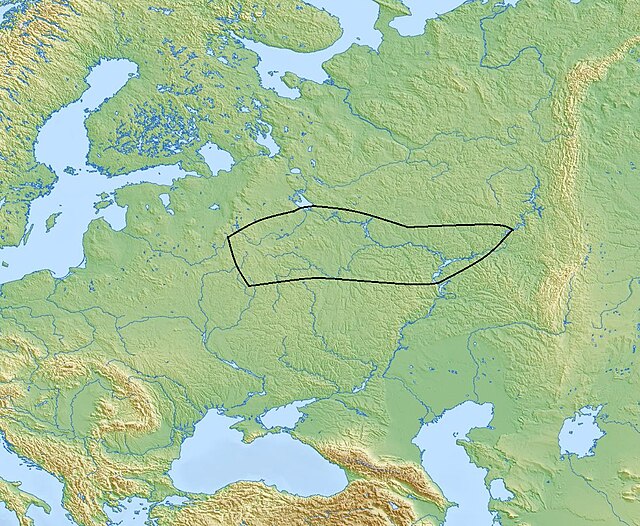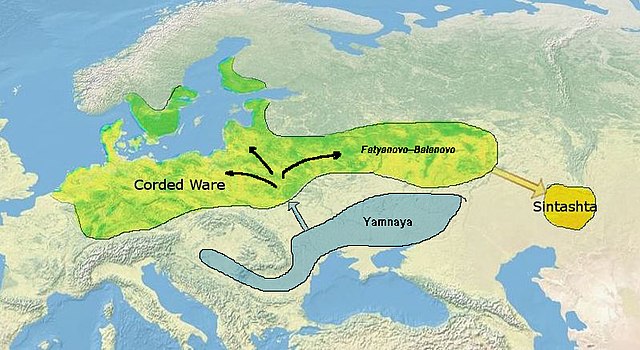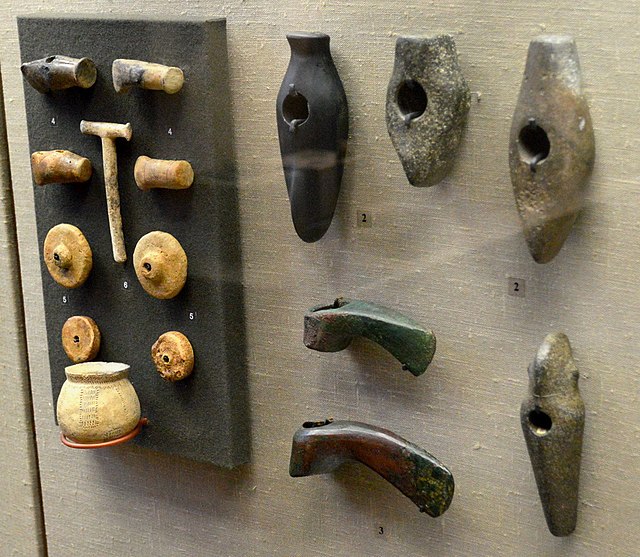Fatyanovo–Balanovo culture
The Fatyanovo–Balanovo culture was a Chalcolithic and early Bronze Age culture within the wider Corded Ware complex which flourished in the forests of Russia from c. 2900 to 2050 BC.
Fatyanovo–Balanovo culture
According to Allentoft (2015), the Sintashta culture probably derived at least partially from the Corded Ware culture. Nordqvist and Heyd (2020) confirm this.
Fatyanovo–Balanovo artefacts including bronze axes
Illustration of a Fatyanovo wagon
The Corded Ware culture comprises a broad archaeological horizon of Europe between c. 3000 BC – 2350 BC, thus from the late Neolithic, through the Copper Age, and ending in the early Bronze Age. Corded Ware culture encompassed a vast area, from the contact zone between the Yamnaya culture and the Corded Ware culture in south Central Europe, to the Rhine in the west and the Volga in the east, occupying parts of Northern Europe, Central Europe and Eastern Europe. Early autosomal genetic studies suggested that the Corded Ware culture originated from the westward migration of Yamnaya-related people from the steppe-forest zone into the territory of late Neolithic European cultures; however, paternal DNA evidence fails to support this hypothesis, and it is now proposed that the Corded Ware culture evolved in parallel with the Yamnaya, with no evidence of direct male-line descent between them.
Corded Ware culture
Corded Ware pottery in the Museum für Vor- und Frühgeschichte (Berlin). c. 2500 BC
According to Allentoft (2015), the Sintashta culture probably derived at least partially from the Corded Ware Culture. Nordqvist and Heyd (2020) confirm this.
Corded Ware stone-axe in the Museum für Vor- und Frühgeschichte (Berlin). c. 2800-2400 BC.







